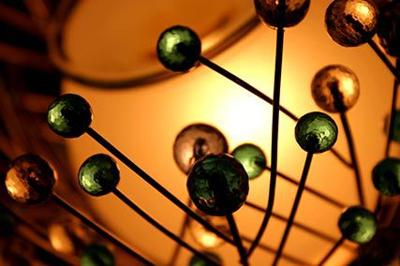Fragrances move us, they relax or stimulate our brains and enlighten our souls. For this reason, essential oils are often used as calming, motivating or healing triggers to the brain. This is the process of olfaction, the scientific name for the sense of smell. The olfactory epithelium is a membrane located at approximately eye level on the face, and is "the only place in the human body where the central nervous system is exposed and in direct contact with the environment." These brain cells have up to 80 million hairs attached to nerve cells that are capable of carrying more information than any other analytical human function. This phenomenon is why smells used in aromatherapy have been used to treat a wide range of physical and mental conditions.
Let's explore the uses and benefits of these oils.
Uses
Aromatherapy uses have come and gone throughout the centuries. Though Egypt is well known for having used essential oils for both medicinal and beautification purposes, a French chemist named Dr. Rene–Maurice Gattefosse is considered to be the "father of modern aromatherapy" as he coined the term and used it as the title of a book he published in 1937. Gattefosse brought consideration of the medicinal and cosmetic applications of essential oils back into light, and inspired Dr. Jean Valnet, a French Physician during World War II, to use them in his practices to heal war injuries. Valnet later went on to publish Aromatherapie, Treatment des maladies par les essences des plantes, and taught thousands of other French Physicians how to properly use essential oils through aromatherapy, massage and digestion under a doctor’s care.
Benefits
Pure essential oils are the concentrated fragrant components of plants and herbs that can profoundly influence our psychic equilibrium, psychological well–being and physiological processes. Their effects simultaneously benefit the mind and body. Essential oils are favored by massage therapists during treatment of certain ailments whereby the oils are massaged into the skin of a client to obtain healing and lower the degree of distress on the body. Essential oils may also be ingested but only under the care and instructions of a practicing professional. Though aromatherapy works well as an adjunct to other types of treatment, and practically all holistic therapies are likely be strengthened in their effectiveness when essential oils are part of the treatment, it is important to know that aromatherapy and homeopathy do not mix. The essential oils cancel out the effects of homeopathic remedies. This is true for internal use of essential oils as well as the external use of camphor, mint and chamomile, so avoid them altogether during homeopathic treatment. Properly administered, however, essential oils produce no harmful side effects.
Pure essential oils can be very expensive as many consider them precious medicine. Oftentimes cheaper oils are combined with more costly ones in an attempt to keep prices lower. Because of the potentially high cost of essential oils, it is important to store them correctly in order to get the most and longest benefit from them. Since essential oils are light sensitive; they should never be kept in clear bottles because the quality of the oil diminishes quickly when exposed to any type of light. If not exposed to extreme temperatures (not below freezing or above 95 degrees), essential oils remain fully potent for 1 year. Oils made from citrus fruits are more sensitive and it is recommended that they be stored in the refrigerator; on the other hand, oils like jasmine, patchouli, rose, sandalwood and rosewood improve (ripen) over the years just as a fine wine does.
Essential oils may be breathed in through the use of inhalation devices such as aroma lamps and aerosol applicators, but are most commonly applied in diluted forms during massage, in therapeutic baths and for compresses. In all forms, they affect the body and soul in a positive manner, and are available online or in health food stores to be used and applied by all under the supervision of a health practitioner.
Look for a future article on essential oils such frankincense, jasmine and lavender, their healing properties and uses.



(0) comments
We welcome your comments
Log In
Post a comment as Guest
Keep it Clean. Please avoid obscene, vulgar, lewd, racist or sexually-oriented language.
PLEASE TURN OFF YOUR CAPS LOCK.
Don't Threaten. Threats of harming another person will not be tolerated.
Be Truthful. Don't knowingly lie about anyone or anything.
Be Nice. No racism, sexism or any sort of -ism that is degrading to another person.
Be Proactive. Use the 'Report' link on each comment to let us know of abusive posts.
Share with Us. We'd love to hear eyewitness accounts, the history behind an article.